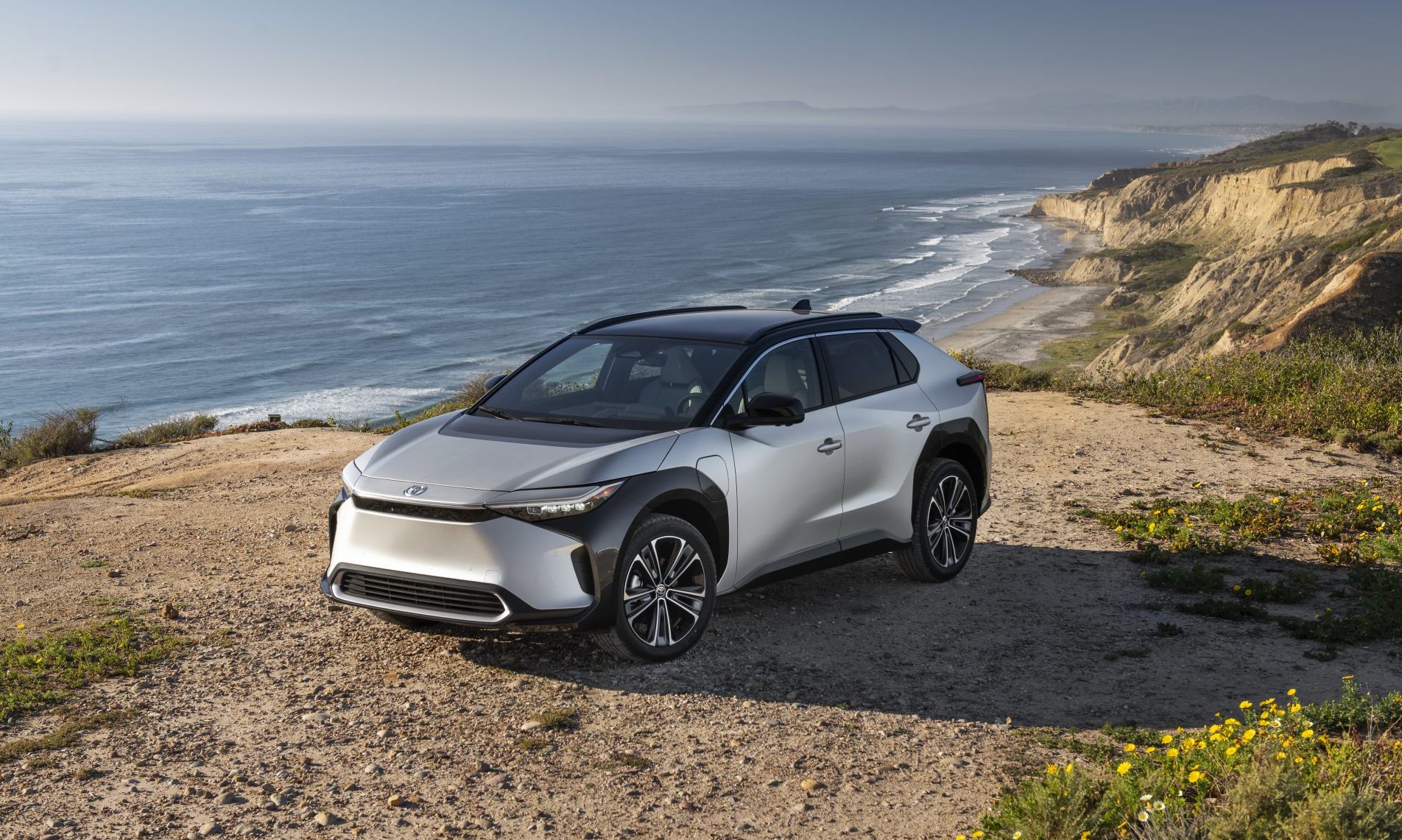Toyota has had a long history of speaking out against an all-out transition to electric vehicles (EVs), continually pointing to hydrogen technology and continued gas vehicle production as important pieces of the puzzle. In a recent statement, a Toyota chairman referenced a new project for the automaker, and while he didn’t share details, he did emphasize how hybrids and internal combustion engines (ICE) “still play a role” in reaching carbon neutrality goals.
After Toyota boosted its 2025 battery-electric vehicle (BEV) production forecast in November, the company later that month said that it expects to produce more hydrogen cars than its recently announced solid-state EVs by 2030. On Friday, former Toyota CEO and current chairman Akio Toyoda said that the automaker has gained approval from executives to start a project to “promote engine development anew,” with messaging on high-performance ICEs expected to play a big role for the company in 2024, according to Automotive News.
“There is still a role for engines as a practical means of achieving carbon neutrality,” Toyoda said on Friday during the Tokyo Auto Salon conference. “So, let us refine engine technology.”
Toyoda says that he was given approval from current Toyota CEO Koji Sato and other members of the executive body to follow through on the project. While he didn’t provide any further details on the initiative, he reiterated themes around BEV adoption that he has echoed through much of his career, highlighting hydrogen and the need for a smooth social shift to electrification.
“Battery electric vehicles do not represent the only way to achieve carbon neutrality,” Toyoda added. “Should we not all have enthusiasm for cars as we take on the challenge.”
Through advanced combustion engine development, Toyota still hopes to help fight carbon emissions while also helping to preserve jobs for those currently in ICE manufacturing, according to Toyoda. He said that many of the roughly 5.5 million people in Japan’s important automotive sector currently rely on part production for ICE vehicles.
“These people support Japan and have the skills to make the Japan of tomorrow strong. We must never lose these people,” Toyoda said. “To all those who have made engines up until now, let us continue to make engines… I will never let all the work you have all done so far go to waste.”
Toyota has had a fairly long history of vouching for a gradual transition to battery electric tech, and generally holding off on an “EV-only” approach to electrification—despite being the hybrid pioneer that developed the Prius.
In May, Toyota sent a document to dealerships highlighting what the company considered three major barriers to widespread BEV adoption. Toyota wrote that the first major barrier was the impossible demand for critical minerals needed to make EV batteries, while the lack of charging infrastructure and affordability were the other two.
The document elicited a response from Tesla Vice President of Investor Relations Martin Viecha, who debunked the claims, saying, “How is this a real document?”
1. Less mining/extraction is needed in renewable economy due to no fossil fuel extraction
2. Your car is fully charged every morning, so fast charging needs are limited, yet widely available
3. Model 3 costs ~$37.5k post EV creditHow is this a real document?
— Martin Viecha (@MartinViecha) May 30, 2023
In 2021, a New York Times report also depicted how a Toyota executive had lobbied against an aggressive electrification strategy in a meeting with U.S. congressional staff, as part of larger, worldwide efforts to reject stricter regulations in the U.S. the European Union, the United Kingdom, Japan, India, and Australia, among others still. The automaker’s slow-paced approach to electrification was also defended by the White House last year.
What are your thoughts? Let me know at zach@teslarati.com, find me on X at @zacharyvisconti, or send your tips to us at tips@teslarati.com.


ivermectin 12mg – buy tegretol sale carbamazepine uk
buy generic amoxil over the counter – combivent where to buy buy ipratropium 100 mcg pill
zithromax 250mg brand – order azithromycin 500mg order bystolic 20mg generic
oral prednisolone 5mg – order progesterone pills prometrium 200mg sale
lasix 40mg cost – piracetam order betamethasone drug
order neurontin sale – clomipramine online order buy itraconazole 100 mg generic
order augmentin 625mg online cheap – cymbalta price where to buy duloxetine without a prescription
vibra-tabs over the counter – purchase doxycycline online cheap glipizide buy online
buy semaglutide 14 mg pills – buy semaglutide no prescription periactin 4mg without prescription
tizanidine 2mg price – zanaflex cost purchase hydrochlorothiazide online cheap
viagra order online – viagra 100mg drug cheapest cialis online
buy cenforce no prescription – metformin 1000mg brand order metformin online
lipitor 40mg cheap – buy norvasc without prescription lisinopril 2.5mg pill
atorvastatin for sale – atorvastatin 40mg without prescription buy zestril 10mg generic
order prilosec online cheap – metoprolol drug atenolol 100mg ca
buy depo-medrol online cheap – how to get medrol without a prescription aristocort 10mg cost
order desloratadine without prescription – priligy 30mg tablet buy priligy sale
buy misoprostol 200mcg – order xenical 120mg online cheap diltiazem pills